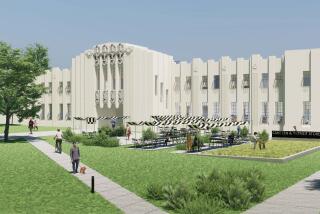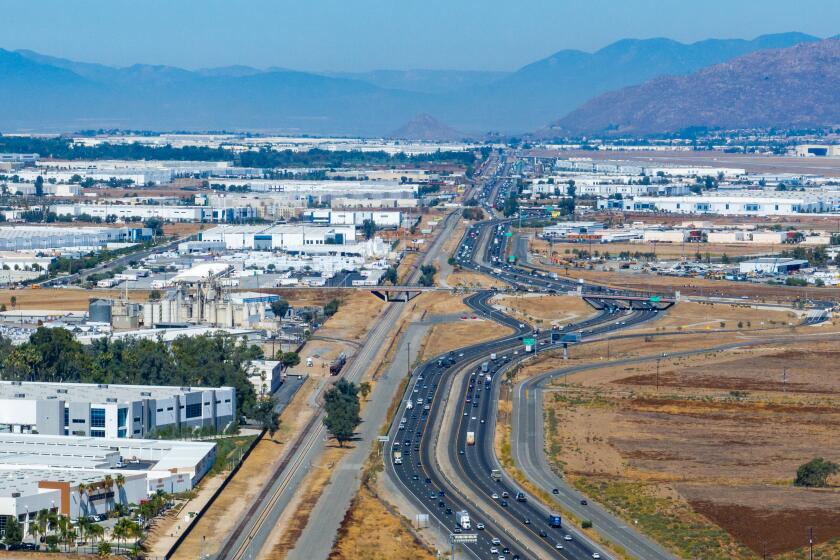COUNTYWIDE : Irvine Backs Out of Border Change
Eleven years after agreeing to straighten its curved eastern border with the city of Tustin, Irvine officials recently backed out of the agreement after deciding the city would lose too much land in the process.
The decision came as a surprise and disappointment to Tustin officials and added another strain in relations between the neighboring cities, City Manager William A. Huston said.
Under a border realignment plan adopted by the Irvine City Council in 1980, Irvine would have given Tustin 96 acres of undeveloped land in exchange for 140 acres of Tustin property now destined for Marine Corps housing. But as the cities were preparing to finalize the plan, the Irvine City Council voted last week to keep the 96 acres and break off talks with Tustin.
“Irvine, literally at the last minute, decided there was a problem,” Huston said. “All of the sudden they decided it wasn’t in their best interest.”
Until two months ago, realigning the border along Jamboree Road through the Tustin Marine Corps Air Station seemed like a good idea for both cities, Irvine City Manager Paul O. Brady Jr. said. Irvine would have gained by adding current and future low-cost housing on the Marine base, which would have been credited toward the city’s regionally mandated level of affordable housing, and Tustin would have received 96 acres of developable industrial land.
Both cities also would have enjoyed a clear-cut border, solving potential problems such as which police force should respond to accidents on Jamboree, which is now split between the cities, the city managers said.
But Irvine recently learned that the Southern California Assn. of Governments would not count the current and future base housing as part of the city’s affordable housing, Brady said.
More importantly, he said, the Irvine Co. had submitted plans to Tustin to develop the 96 acres at a level more than three times denser than Irvine officials hoped. So not only would Irvine lose the tax revenue from the land, it would face increased traffic from the development, Brady said.
Industrial and commercial development of the 96 acres will bring in about $1 million a year in taxes to whichever city controls it, Irvine planners recently estimated. A year ago, the estimate was about $186,000.
With the new information diluting the benefits Irvine had hoped for from the land swap, Brady said he decided to recommend that the City Council not proceed with the deal.
But Irvine’s loss of tax revenue from realigning the border was never a secret or--until recently--a concern, Huston said.
“It would have been helpful if they had made this decision a long time ago,” he said. “We went so far down the road and expended so much time and effort on this, and to have the rug pulled out from under us. . . .”
Irvine’s decision to back out of the longstanding agreement is the third time this year that fears of development-induced traffic have created friction between the two cities.
This summer, Tustin officials complained that Irvine was about to approve more development in the huge Irvine Business Complex without studying how increased traffic would impact Tustin. In August, the Tustin City Council threatened to sue Irvine for not studying how traffic from the Irvine Co.’s proposed 2,885-home Northwood 5 project would impact Tustin.
“These land-use issues have caused some strains, staff to staff,” Huston said. But both Huston and Brady said the conflicts should not hamper future projects or agreements.
“We’re going to work it out and move on,” Huston said.
More to Read
Sign up for Essential California
The most important California stories and recommendations in your inbox every morning.
You may occasionally receive promotional content from the Los Angeles Times.










